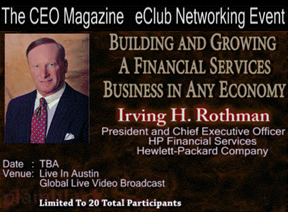You are here
- Guest Blogger |
- Leadership |
- Thu, 07/06/2017 - 22:54

Jeff Thompson, MD, CEO Emeritus and Executive Advisor, Gundersen Healthy System
As CEOs we are generally very skilled at strategic planning or operational implementation. Many are great at recruiting and others are superb at building strong teams or diverse partnerships. All of those are very important. But one of the key pieces that many of us do poorly is managing marginal performances or behavior by other senior leaders or recognized “rising stars” in the organization.
Most likely we all can think of that staff member we picked, or the one we encouraged to lead. We brought them along and saw them shine on some amazing project or innovative development. We had great hopes that they would live up to our expectations. The problem occurs when they don't live up to those expectations in fact they fall below what is expected and far below what is needed.
The great paradoxes is that we often are quite disciplined in managing people in the front lines. Those that are recent hires or early in their career get crisp attention. Any deviation outside the values of the organization results in a large red flag followed by either rapid change in behavior or their unceremonious exit.
Those who we have promoted or allowed to be promoted may have all the same flaws but our tendency is to give them much more space. What we allow them to get away with, we are seen by all others as supporting. Through the eyes of the staff, what we tolerate we support.
To add to the problem, we know influence is much larger than the normal lines and boxes in an org chart. Influence goes sideways, broadly downward and even way up into the organization. If they are a bright light that light will cross many departments but if they cast a shadow, the shadow will have an enormous impact and slow down your plans and be a drag on progress. The ripple effect of allowed poor performance or bad behavior will taint not only the people around them but departments across the organization and potentially external relationships. It can affect production, creativity and the retention of other true rising stars.
The frontline staff and managers know what's happening. They watch carefully and act based on your lead.
The more special and protected we treat our executives, the less special and more afraid will be the rest of the staff. You can't expect great things from them if they're focusing on what they see as the shifting values of the organization.
Hard to manage this because it is impossible for you to be in all places at all times and know everything that's going on. It is important to use a system or tools to help you accomplish this critical piece of your responsibility. General Electric long used the nine box system to evaluate both potential and performance on a large grid. That in itself will not solve the problem but instead of just gathering your Senior Vice President and yourself to evaluate all the other vice presidents or directors in that division, gather all the other senior executives together and each present their people and the others give their impressions. Have the leader responsible for each person being discussed place that person on the grid and let that leader defend that positioning. It will accomplish two very important tasks for you. First it will give you and the other senior leaders a much clearer understanding of how this person performs across all venues whether you are in the room or not. Another very important feature is that you can then turn to all the senior leaders and expect of them to be responsible for the growth, development and success of each of the young leaders described.They now have to change their thinking from just holding their downline accountable to being responsible for the growth, development and success of all the rising leaders. This process will help set a more consistent universal standard of behavior, and a tone of development not ruling.
Having the courage and discipline to take on poorly performing mid to senior level leaders is absolutely critical. If you are going to make progress in your organization you have to be clear and consistent with everyone. To help you get that right and make the tone disciplined but positive use a tool like thenine box. Used with the caveat that all are responsible for the success of the rising leaders, it will help you build young leaders and also tell you a lot about who on your senior staff are going to live the values and help build the next generation.
About the Author
Jeff Thompson, MD is the author of LEAD TRUE: Live Your Values, Build Your People, Inspire Your Community (Forbes Books, April 25, 2017). Jeff is the CEO Emeritus and Executive Advisor at Gundersen Healthy System.
Follow The Blog
Blog Categories
- Business Ops. (45)
- Editors (3)
- Entrepreneurship (196)
- Finance (25)
- Leadership (529)
Blog Authors
- Guest Blogger (835)
- Cynthia Kay (92)
- Linda Henman (78)
- Dianna Booher (46)
- Craig Ross (31)













